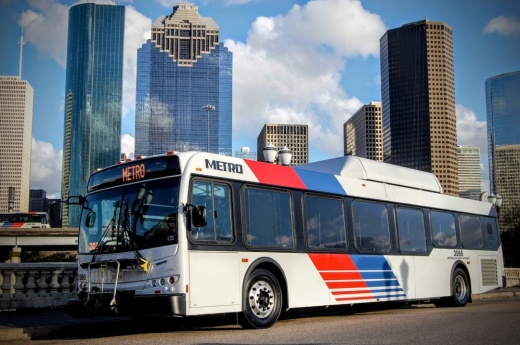Two years after the Metropolitan Transit Authority of Harris County’s bonds got the voter green light to move forward with funding traffic projects, President and CEO Tom Lambert described the METRONext Moving Forward plan’s progress as “a collaborative effort” with local governments and agencies. The Moving Forward plan is described as over 500 miles of improvements to city transit centers, light rail and bus services, according to the project's website.
Lambert delivered those remarks at an Aug. 4 North Houston Association Transportation Committee meeting, where he was the organization’s guest speaker. He opened the presentation by thanking the Houston-Galveston Area Council for $180 million in funds to begin the first phase of planning the METRORapid light-rail plan in inner Katy.
“We’re now looking at connecting our northwest transit center to downtown Houston, inside [Loop] 610 from [I-10] to downtown,” Lambert said. “It’s not just [Loop] 610 to downtown. It’s all those commuter buses that also come through the [Hwy.] 290 corridor, all those commuter buses that come from the I-10 corridor, and we’ll have them connect the uptown line as well.”
Part of the presentation touched on how COVID-19 affected the agency’s planning. Lambert provided statistics showing METRO ridership on local systems was 56% of its pre-pandemic levels, while park-and-ride systems were at 86%. Lambert attributed the drop to decreased employment in Houston’s downtown areas, where commuters would normally fill those seats.
“Prior to the pandemic, 37% of work trips downtown were by METRO,” Lambert said. “Downtown Houston does not have the same number of employment.”
In response to a guest’s question about the viability of the agency’s models with employees potentially opting for remote work, Lambert said METRO had an opportunity to study and adapt.
“I think we’re gonna learn a lot, to be honest,” Lambert said. “You’re still gonna need long-haul services, but the question is how much long-haul services, and how do you best deliver it.”
Other guest questions focused on the North Houston Highway Improvement Project, part of which involves rerouting and expanding I-45 through East Downtown and the Northside while abandoning its path through Midtown.
Lambert said METRO's priority was keeping the Texas Department of Transportation’s planned $7.9 billion funding in Houston. He added the agency had been in “constant contact” with TxDOT and that they had “made assurances” on all of METRO’s concerns. The project is open for public comment until Aug. 16, and the North Houston Association published a call to action to support the controversial expansion on its website in July.
"This money needs to stay,” Lambert said.
According to Lambert, the METRONext Moving Forward plan was designed in line with the specifications TxDOT has made publicly available in its record of decision for the I-45 project.
Lambert ended his presentation with a continued call for collaboration and public input.
"We're not in competition with each other; it's how do we leverage what each of us brings to the table," Lambert said. "That's what the METRONext project is all about."





